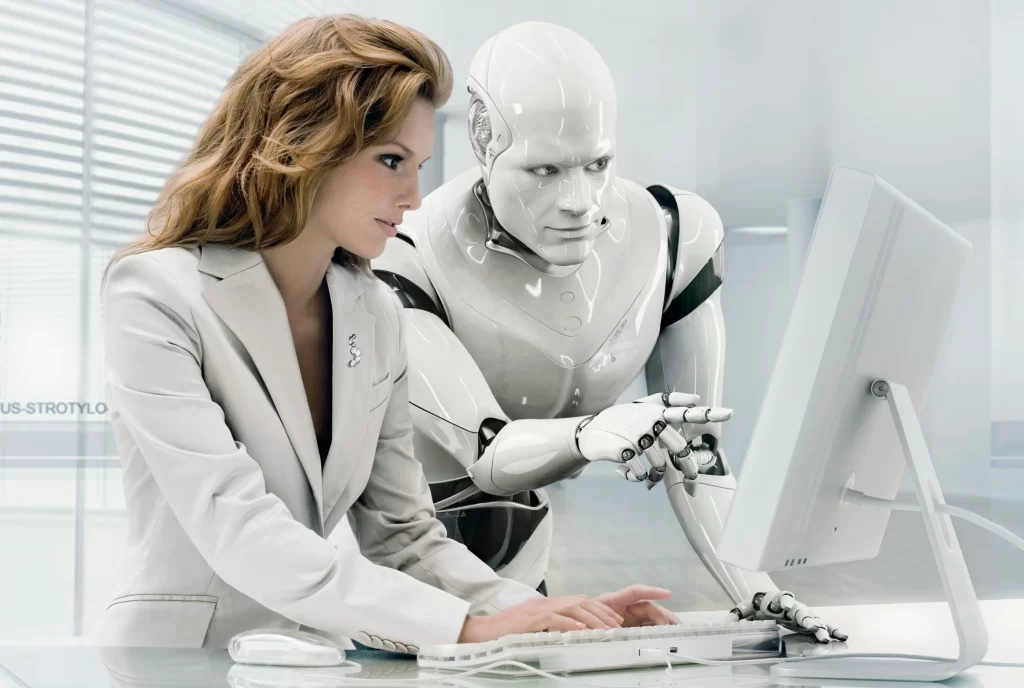The workplace is evolving rapidly, driven by advancements in technology. One of the most significant shifts is the rise of robo-coworkers, which are transforming the future office landscape. In this article, we will explore the impact of robo-coworkers on the workplace and how professionals can navigate this new reality.
The Role of Robo-Coworkers in the Modern Office

Robo-coworkers, also known as robotic coworkers, are intelligent machines designed to assist humans in various tasks. They can perform a wide range of functions, from simple repetitive tasks to complex analytical work. These machines are equipped with advanced algorithms and artificial intelligence (AI) capabilities, allowing them to learn and adapt to different environments.
One of the key benefits of robo-coworkers is their efficiency. They can work tirelessly without the need for breaks or rest, increasing productivity levels in the workplace. Additionally, they can handle tedious and mundane tasks, freeing up human workers to focus on more creative and strategic aspects of their jobs.
Implications for the Future of Work

The rise of robo-coworkers has significant implications for the future of work. As these machines become more advanced and capable, they are likely to replace certain jobs that are repetitive or can be automated. This shift will require workers to adapt and acquire new skills that are in demand in the age of automation.
However, robo-coworkers are not just a threat to jobs—they also present opportunities. They can augment human capabilities, leading to new job roles that require a combination of human creativity and machine efficiency. Organizations that embrace this change and invest in retraining their workforce will be better positioned to thrive in the future.
Navigating the Future Office Landscape

To navigate the future office landscape shaped by robo-coworkers, professionals need to embrace lifelong learning. This means staying updated with the latest technological advancements and acquiring new skills that are relevant in a digital age. It also involves being open to collaboration with robo-coworkers, understanding their strengths and limitations, and leveraging their capabilities to enhance productivity and innovation.
Additionally, organizations need to foster a culture of innovation and adaptability. This includes encouraging experimentation and risk-taking, as well as providing employees with the resources and support they need to thrive in a rapidly changing environment. By embracing change and continuously evolving, both individuals and organizations can thrive in the era of robo-coworkers.
FAQs
Q: Will robo-coworkers replace human workers entirely?
A: While robo-coworkers are likely to replace certain jobs, they also create new opportunities for collaboration and innovation between humans and machines.
Q: How can individuals prepare for the rise of robo-coworkers?
A: Individuals can prepare by acquiring new skills that are in demand in the age of automation, such as data analysis, programming, and digital literacy.
Q: What are some industries that are likely to be impacted by robo-coworkers?
A: Industries such as manufacturing, customer service, healthcare, and logistics are already seeing the impact of robo-coworkers, with increased automation and efficiency.
Conclusion, the rise of robo-coworkers is reshaping the future office landscape, bringing with it a mix of challenges and opportunities. On one hand, there is the potential for certain jobs to be replaced by automation, requiring workers to adapt and acquire new skills. However, this shift also presents opportunities for collaboration and innovation between humans and machines.
To navigate this new reality successfully, professionals and organizations need to embrace technological advancements. This includes staying updated with the latest trends in robotics and AI, as well as acquiring new skills that are relevant in a digital age. It also involves fostering a culture of innovation, where experimentation and creativity are encouraged.
By embracing change and continuously evolving, individuals and organizations can thrive in the era of robo-coworkers. The future of work is evolving rapidly, and those who are prepared to adapt will be well-positioned to succeed in the age of automation.
Artificial Intelligence Automation Future of Work Future Office Landscape Robo-Coworkers
Last modified: February 2, 2024























